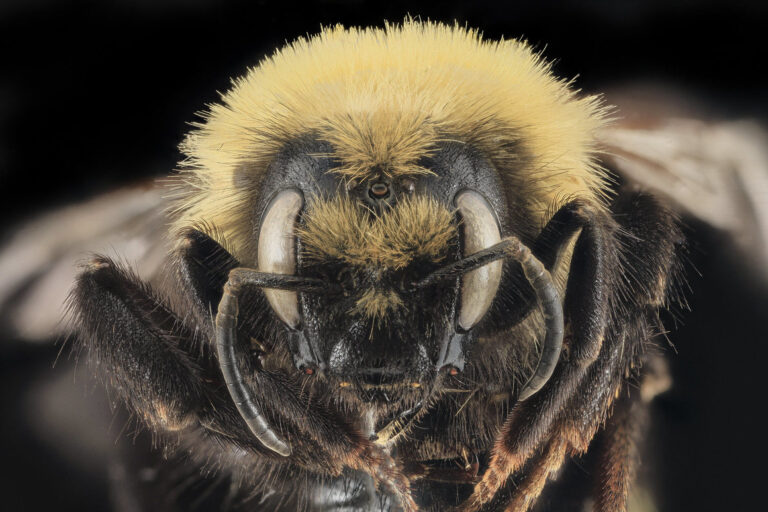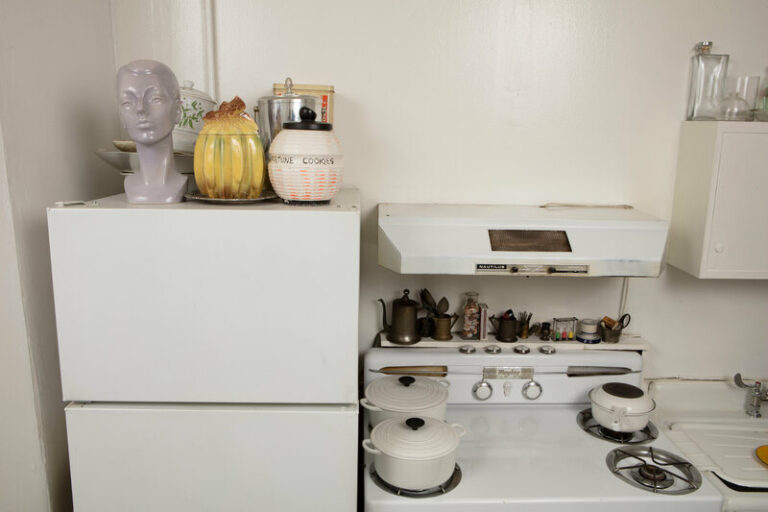The Women of ‘The Expanse’ Will Be the Show’s Greatest Legacy
Set 200 years in our future, The Expanse is as much a sci-fi series as it is a political drama. Everyone wants to colonize the solar system and it’s a race to the start line. Earth is run by the United Nations, Mars is an independent nation terraforming its way to a greener future, and factions along the asteroid belt known as Belters are looking to gain more power on the interstellar stage.
The show has drawn wide praise for its stunning visuals (most sets were built-out on the largest available stages of Pinewood Toronto Studios instead of heavily relying on green screens, and in Season 4, an active quarry helped create a desolate frontier-planet look). It’s also famously scientifically accurate, a choice informed no doubt by showrunner Naren Shankar who has a Ph.D. in electrical engineering and previously worked as a scientific consultant for Star Trek: Deep Space Nine.
Perhaps most impressively, though, from the beginning, the show fought for purposefully inclusive casting that is revelatory for the genre. As pointed out by Tasha Robinson at The Verge, “There’s no reason to assume, sight unseen, that any given referenced characters, regardless of their position in the world, will be white men.”
Still, among all these technical and narrative achievements, none are as remarkable as the way the women on the show dominate and lead the storytelling. There are women of all ages, races, body types, and sexualities in the universe of The Expanse, in positions of authority, representing the working class, pilots, soldiers, scientists, refugees, community leaders.
Even more impressive than their numbers is the fact that none of them fall into the usual tropes women in genre shows are typically confined to, such as the Girl Boss, the Mary Sue, and the Born Sexy Yesterday (a term coined by YouTuber Jonathan McIntosh who uses it to describe the sci-fi trope found in movies like Tron, The Fifth Element, and the original Planet of the Apes, where women are sexy and helpless, externally Barbie-like but internally child-like).
The minds of the women of The Expanse are always whirring, and the show delights in showing us how they work. As season five unfurls, it becomes clearer and clearer that their stories are the beating heart of the show. So let’s give them their due recognition.
Naomi Nagata
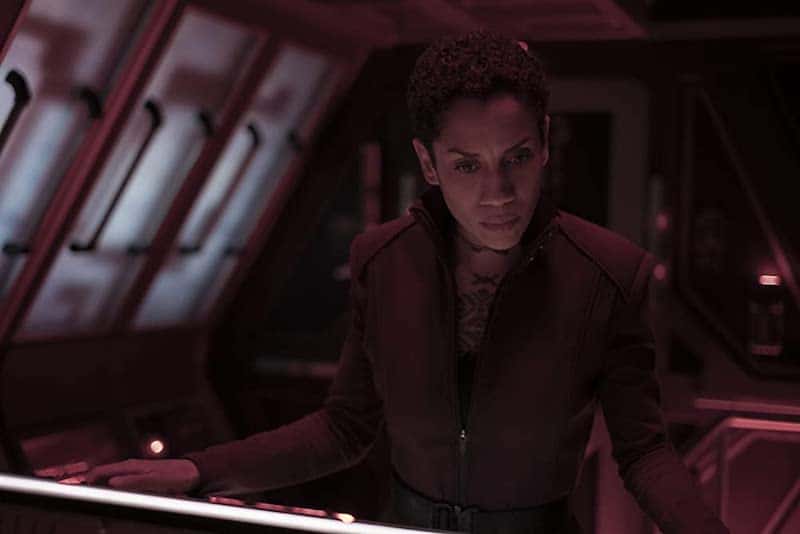
Naomi, played by British-Dominican actress Dominique Tipper, is officially the Rocinante’s executive officer. She’s also its chief engineer, conscience, and the love interest of its captain, Jim Holden. That order is significant. Her most important role is as the ship whisperer, making sure to repair it post-battle and generally help improve the quality of its flight and operations. Her skills are showcased daily as she attends to the problems, small and large, that spaceflight entails, and the respect she commands is evident in the way Holden regularly defers to her for major decisions concerning the crew.
Naomi is also the conscience of the Rocinante, but she is not an infallible angel immune from having crises of conscience of her own. She was formerly a member of the OPA (the Outer Planets Alliance), a Belter collective seen as either terrorists or freedom fighters depending on whom you ask, and fell in love with one of the group’s most brutish members, Marco Inaros, a man who has kept her from her son for years. Inaros’ actions at the end of Season 4 set him up as the Big Bad of the fifth season, giving Naomi the greatest personal and political motives out of anyone for going after him.
“I think sometimes when we talk about representation, we forget about the flawed-ness of humans,” Tipper said in a conversation with TV Guide about the image her character provides. “We don’t just want to see a strong Black woman trope. We want to see a Black woman who is ripped from her family, and is navigating that, and has privilege, and that makes wrong decisions and does the right thing, and you’re still in love with her at the end of it. Because I think too often when we try to diversify in Hollywood or on shows, we try and portray the most wholesome version of that or the most palatable version of it, and that’s where you run into problems.”
Naomi is a Black woman who is the brains of the operation, a friend, a mother, a lover, someone who has been wronged and done wrong but is striving to right it all. As Samantha Olthof writes in FSR’s review of The Expanse Season 5, “The strong all-around performances this season are crowned by Tipper’s heart-wrenching delivery of Naomi.”
Camina Drummer
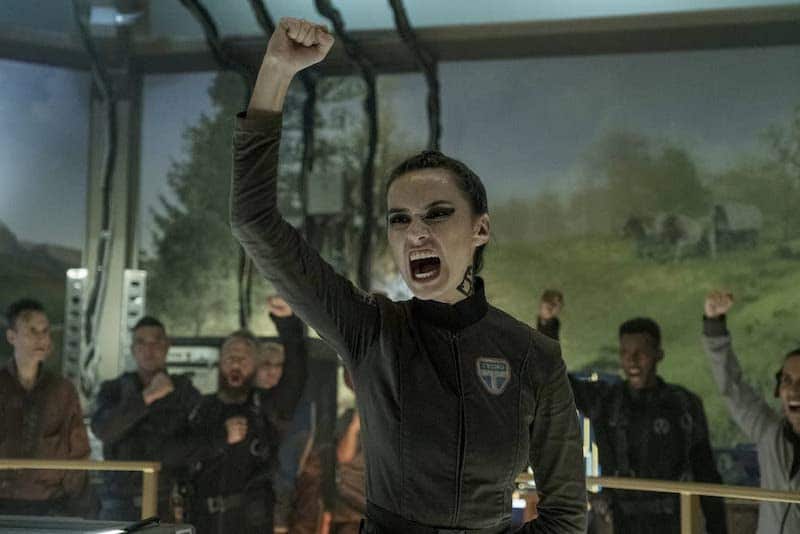
Drummer, played by Canadian actress Cara Gee, is a no-nonsense Belter captain. A lot of her fire comes from a personal connection to the material. Gee is Ojibwe and one of the few Native actors currently working in television let alone a science-fiction series. She explained to Entertainment Weekly at New York Comic-Con that Drummer’s passion for Belter justice reminds her of the struggles indigenous people are going through now.
“In real life, I’m an indigenous woman,” she says, “and so for me, in particular, the questions about access to clean air and water and who has access to that is one that is extremely relevant given that so many reserves don’t have access to clean water even in Canada and in the United States, and that, to me, is just so mindblowing: that we can exist in such luxury, some of us, and others so oppressed.”
Although she is both strong and smart, Drummer is not the strongest fighter or the smartest engineer on the show. She is, however, one of the most powerful people in any room she enters because of her innate ability to read people and ascertain their desires. She uses this gift to plot. She’s not too proud to work under someone — she served as a prized lieutenant to two different OPA faction leaders proving her adaptability — or to work with past enemies because she sees its utility.
She’s not too squeamish to take out people aboard her ship who attempt a mutiny because she isn’t clouded by idealism about how the groups can someday all get along. And when her legs are injured in the middle of a massive crisis, she powers through the pain and builds a solution while in her hospital bed so that she can return to help her shipmates ASAP. She is the most present of all the characters. Her mind is goal-oriented and always-active: In this moment what do I need, whose resources can I leverage to achieve my goal?
Drummer’s friendship with Naomi is one of the highlights of the show. Both Belter women share a goal but have two very different perspectives on how to achieve it. In one exemplary scene the two talk about a drug dealer aboard their ship who is supplying incapacitating drugs to skiff drivers. Naomi is worried about handing over the guy to Drummer for fear of letting her down but also because she doesn’t want him to be violently punished. This changes when his actions cause another shipmate to lose his life and damage much-needed equipment. “I don’t expect you to be perfect. Or anyone,” Drummer tells Naomi. “That skiff driver was free to put whatever he liked into his body — we all are — until that freedom puts others at risk. And then we act accordingly.”
It’s a very enlightened leadership approach that demonstrates Drummer’s nuanced understanding of human behavior while also displaying her pragmatism: things that get in the way of her goal must be dealt with quickly and unsentimentally. With every scene she appears in, Drummer continues to prove she is one of the most unique women to appear in any sci-fi series.
Roberta “Bobbie” Draper
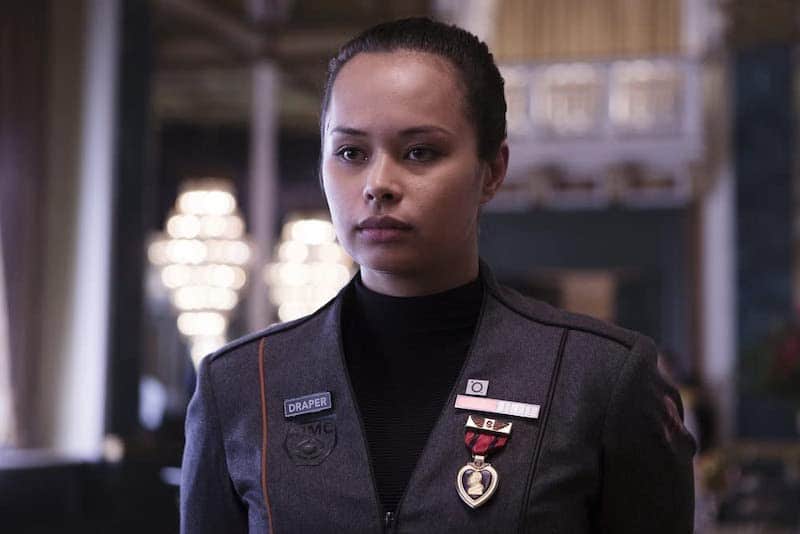
Bobbie, a Martian soldier played by Samoan actress Frankie Adams, is a trope-busting character in a genre prone to racist stereotypes where Asian characters are concerned. This September, a tweet went viral for dissecting the harmful trope of the nonverbal woman that many women of color are forced into on-screen. Within the thread, it was particularly evident that this trope is especially common for Asian female characters (Karen Fukuhara appears twice on the list for two different nonverbal roles). In addition to being nonverbal for largely unexplained reasons, Asian characters are also typically depicted as unfeeling and expendable (author Paula Young Lee wrote about this specific trope, The Expendable Asian Crewmember, for Salon).
In The Expanse, Bobbie is the antithesis of these harmful stereotypes. She has a lively personality, is purposeful but not mechanical, and is definitely not expendable to the show. Since her introduction in Season 2, Bobbie has been given the most prized arc on any genre show: a hero’s journey.
In a memorable sequence that could have easily been cut (or would never even be filmed on another show), Bobbie escapes from her room in the Mars embassy using her know-how in order to MacGyver an exit. Instead of nailing it on the first round, she noodles around until she finds a tool made of strong enough material to penetrate her window: fittingly, the purple heart Mars awarded her for parroting propaganda instead of standing in her truth. We watch her work through the problem. Methodical, logical, relentless. Her attributes aren’t just buzzwords to satisfy a demand for more feminist storytelling, they are provable because of the material the character is given.
The show’s writers also avoid the infamous Mary Sue trope by showing us how she achieves her wins and also letting us see her lose. We know Bobbie is a force of nature not because of her cool Martian war suit but because we’ve seen her kick ass with or without it. An interrogation scene shows she has the moral fortitude to stand up to her military command when she smells something rotten even if it means breaking from the Good Little Martian she was groomed to be her entire life.
In another scene, she and two other characters get ambushed, and Bobbie has to figure a way out. She connects to the ship’s site plan and comes up with a daring escape. We watch as she makes her way through a shaft John McClane-style and takes out some gunmen. The sequence isn’t all adrenaline, though, because while she can bluntly take out a series of men, she isn’t a machine, so she knows she doesn’t have to. When she encounters an electrician who stands between her and her goal, she uses her words to find a peaceable solution.
Bobbie’s humanity is textual and is always present even in fight scenes. Her journey from blunt instrument for Mars to free-thinking agent of change has been one of the most rewarding on the show.
Clarissa Mao
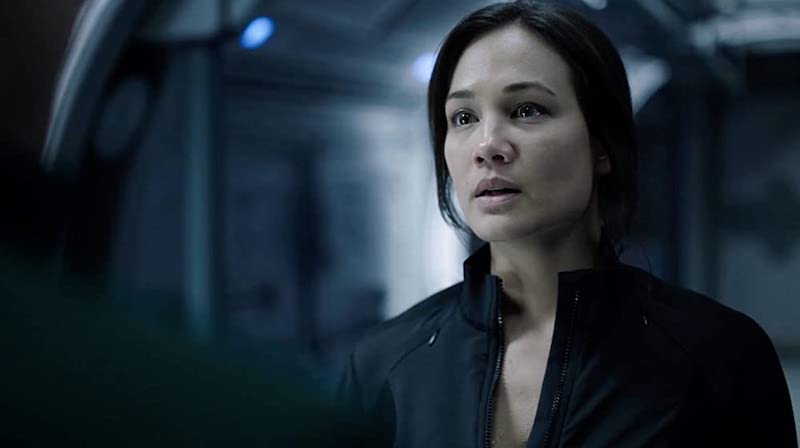
Clarissa, played by Nadine Nicole, was introduced as the older sister of Julie Mao, the missing person who set off the events of the first season. The uber-privileged daughters of early-season antagonist Jules-Pierre Mao have very different trajectories on the show. While Julie turns her back on her father and his nefarious plans for weaponizing a lethal alien protomolecule, aligning herself with the Belter revolutionaries, Clarissa is at first glance a blindly loyal daughter.
In the third season, she begins a methodical attack against Team Rocinante in an effort to seek justice for her father, whose ill-doings the crew helped bring to light. Clarissa is so committed to this assignment that she adopts an alter ego, goes undercover, and gets non-reversible modifications to her body that turn her into a lethal machine when activated. Her plans set off one of the tensest sequences in the show thus far: a multi-spaceship chase through an unexplored alien ring. Her fate seems sealed until, in a crucial moment, she overhears Holden and Naomi discuss how they need to save everyone from a potentially extinction-level event, and Clarissa’s view of him and of herself shifts. Her change of heart helps Team Rocinante thwart a hasty call from a captain who is seconds from killing them all.
After a season’s worth of evidence pointing to her as the most cunning and unapologetic villain the team has yet faced, Clarissa ends up being a hero in their hour of need. Instead of killing her off after one redeeming heroic act (one of the tropiest tropes ever), the show decided it was more interesting to let us watch her change and grow, and it was right. Clarissa has plenty of time to stew on her bad life choices because she ends up receiving a life sentence for committing multiple homicides.
Nicole was bumped to series regular for Season 5, and her arc in this season and on the show overall is evidence of the way The Expanse tries to complicate our understanding of simple television tropes like “good guys” and “villains.” On this show, doing something bad doesn’t make you a villain — at least, not permanently. Similarly, doing one good thing doesn’t mean you’re a good person. Clarissa’s character arc is a microcosm of the moral struggle that everyone on the show is going through in their own way.
Chrisjen Avasarala
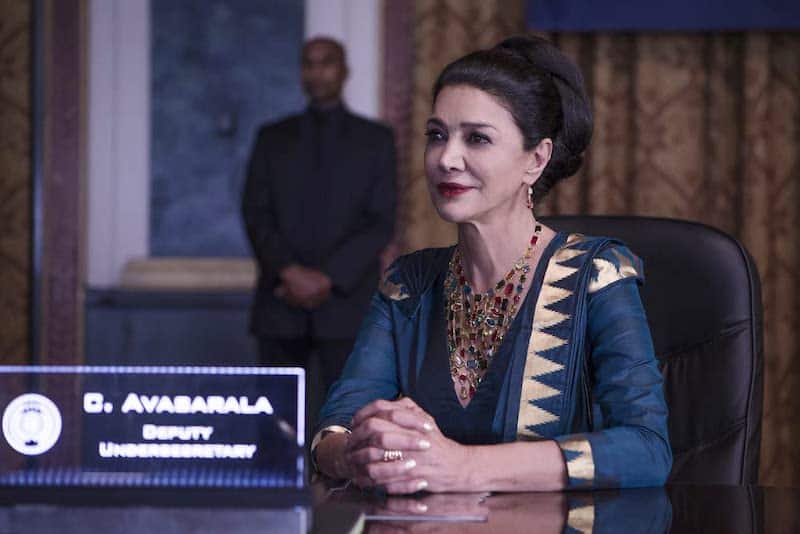
Avasarala, played by Iranian-American actress Shohreh Aghdashloo, is a shrewd and incredibly fashionable politician on the show who eventually becomes the UN Secretary-General, a.k.a the leader of Earth. She sees the world as a chessboard. In the third episode of the first season, there’s a scene between Chrisjen and Frank, an old friend, in which he recounts a story about the time a young Chrisjen was tasked with coming up with a card game for some friends to play.
“You said we each get five cards, you dealt them out, then you pointed to the far end of the yard, and you said, ‘Now whoever gets to the tree first, wins.’ You dropped your cards and were halfway there before anyone else realized what was happening.” Frank explains that that was the moment he became terrified for her because it was the moment he realized she would do anything to win. The story neatly summarizes Chrisjen’s character. Imagine the ruthless political maneuvering of Game of Thrones‘ Cersei but used for good instead of evil.
In Season 4, Chrisjen faces a challenge to her seat as UN Secretary-General, and the election advisers she hires to help secure the win ask her to appear more maternal to voters, to exercise soft power rather than the blunt and sweary force she’s used to wielding, and she all but laughs in their faces.
The Expanse liberates Chrisjen from one of the worst constraints to which a female character can be chained: the prison cell of likeability. She is canonically and iconically unconcerned with whether people like her or not as long as she gets the job done. She is noteworthy because she is a powerful female character who is not simply a carbon copy of male leaders who came before her. This is foregrounded in the very first episode of the series, in which she is depicted as equally at ease torturing a man for information at a UN black site as playing with her grandson.
She’s the most complex character in the series, capable of extreme warmth and coldness, both manipulative and caring, at times the most arrogant and at others the wisest. Though she begins the fifth season fresh off of losing the election, she is not diminished by the loss but fortified by it. If future genre writers are looking for a way to nimbly write about women and power, hers is the mold they should cut from.
Naomi, Camina, Bobbie, Clarissa, and Chrisjen are just five of the many complex female characters that populate The Expanse. There are a lot of shows set in space, but The Expanse has distinguished itself in a classic and oft-explored genre by making sure that women are given, at minimum, equal standing with men on the show. Women are heroes and rogues, they can save the world, and they have just as much power to end it.
In the mythology of The Expanse, society has already moved past the -isms that are still plaguing our world, like racism and sexism, but the series’ insistence that that’s not just a line in the proverbial show bible but a real, critical, and undeniable part of its writing, will undoubtedly be its greatest legacy.


